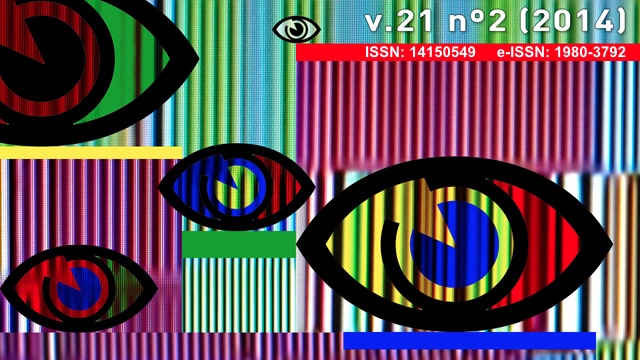To understand the complexity of networks
DOI:
https://doi.org/10.15448/1980-3729.2014.2.15923Keywords:
Networks, Stuart Kauffman, NK modelAbstract
The interest in studies on social networks and collaborative practices on the internet has been recurrent in Famecos, which has published seven articles on the topic only in 2012 and 2013. To contribute to these studies, this paper takes Barabási’s (2009) theory of networks and Latour’s (2012) Actor-Network theory as a basis for the integration of boolean networks and Kauffman´s NK model in this scenario. The paper aims at understanding the forms of network evolution in the light of the processes of self-organization. This becomes particularly interesting if we remember that social networks are dynamic systems in constant change.Downloads
References
BARABÁSI, Alber-László. Linked: a nova ciência dos networks, como tudo está conectado a tudo e o que isso significa para os negócios, relações sociais e ciências. Barueri: Leopardo, 2009.
BREITMAN, Karin; CASANOVA, Marco; TRUSZKOWSKI, Walter. Semantic Web: concepts, technologies and applications. India: Springer International Edition, 2010.
BRZOZOWSKI, Jerzy André. Auto-organização e contingência da biologia evolutiva: um estudo sobre os desafios de Stuart Kauffman e Stephen Jay Gould ao darwinismo. Dissertação (Mestrado em Filosofia) – Universidade Federal de Santa Catarina – UFSC, Florianópolis, 2007.
CASTELLS, Manuel (1999). A sociedade em rede – a era da informação: economia, sociedade e cultura. São Paulo: Paz e Terra, 2012.
CATTUTO, Ciro; LORETO, Vittorio; PIETRONERO, Luciano. Collaborative Tagging and Semiotic Dynamics. cs.CY, 4 maio 2006. v. 1.
DELEUZE, Gilles; GUATTARI, Félix. Mil platôs. Capitalismo e esquizofrenia. Rio de Janeiro: 34, 1995-1997.
DI FELICE, Massimo. Redes sociais digitais, epistemologias reticulares e a crise do antropomorfismo social. Revista USP, São Paulo, n. 92, p. 6-19, dez./fev. 2012.
JENKINS, Henry. Cultura da convergência. São Paulo: Aleph, 2008.
KAUFFMAN, Stuart A. The origins of order: self-organization and selection in evolution. New York: Oxford University Press, 1993.
LATOUR, Bruno. Reagregando o Social: uma introdução à Teoria do Ator-Rede. Salvador: Edufba, 2012.
LEMOS, André. Cibercultura, tecnologia e vida social na cultura contemporânea. Porto Alegre: Sulina, 2005.
LÉVY, Pierre. A inteligência colectiva: para uma antropologia do ciberespaço. Lisboa: Instituto Piaget, 1994.
RECUERO, Raquel. Teoria das redes e redes sociais na internet: considerações sobre o Orkut, os Weblogs e os Fotologs. INTERCOM, 27., 2004, Porto Alegre. Disponível em: http://www.portcom.intercom.org.br/pdfs/121985795651418859729998795470196200751.pdf. Acesso em: 1 ago. 2013.
RECUERO, Raquel. Redes sociais na internet. Porto Alegre: Sulina, 2009.
_____. A conversação em rede. Porto Alegre: Sulina, 2012.
SANTAELLA, Lucia. Linguagens líquidas na era da mobilidade. São Paulo: Paulus, 2007.
_____. Mídias locativas: a internet móvel de lugares e coisas. Revista FAMECOS, v. 1, n. 35, abr. 2008.
SANTAELLA, Lucia; LEMOS, Renata. Redes sociais digitais: a cognição conectiva do Twitter. São Paulo: Paulus, 2010.






